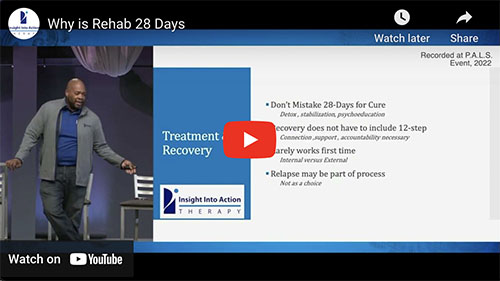When most people think of substance use treatment, they think “rehab.” Specifically, 28-day inpatient rehabilitation programs. This is when I like to pause and ask questions: “Why 28 days?”, “What is someone trying to achieve by entering a 28-day rehab program?”, “Is this the best form of care to meet their needs?”

The truth is, “28-day rehab” is not a medical model. Rather, it was originally a military model. For example: a soldier at Fort Bragg is out of control with their drinking and has one month before reassignment to Fort Belvoir. They may be told, “take these 28-days and get yourself together.” This wasn’t designed by clinicians as an ideal therapeutic model.
In fact, I don’t call inpatient rehab treatment, I call it stabilization. While an individual with a severe substance use disorder may need detox and even an inpatient program, 28 days usually isn’t enough. In practice, it may look something like this: Week one, they’re detoxing. Week two, they’re upset that they’re there. Week three, they may be starting to “get it,” and by week three-and-half to four they’re getting ready for discharge. It just isn’t enough time. They often return to the same environment in which their substance use was occurring and are at high risk for relapse. Moreover, I often see family members spend tens of thousands of dollars as their loved one cycles in and out of rehab facilities.
So, what might a better model look like? Broadly speaking, a more comprehensive approach is needed. If an inpatient rehabilitation program is necessary, it’s important to be realistic about what it can achieve. I believe it should be viewed as an initial step. It can provide enough clean time that one can then more successfully engage in treatment in the community. This treatment may include an intensive outpatient program, individual and family therapy to address mental health difficulties, medications if necessary, repairing relationships, and assistance in obtaining employment and housing. Many also find it helpful to participate in mutual support groups, such as Alcoholics Anonymous.
When speaking with family members whose loved one is in an inpatient rehabilitation facility, I always ask: “What’s the plan for when they are discharged?” I really empathize with individuals and families who are struggling with substance use. It’s stressful and confusing to navigate the different treatment options. Here at Insight Into Action Therapy, we specialize in developing individualized treatment plans that honor everyone’s unique needs. If you or a loved one is struggling with substance use, we’re here to help.






